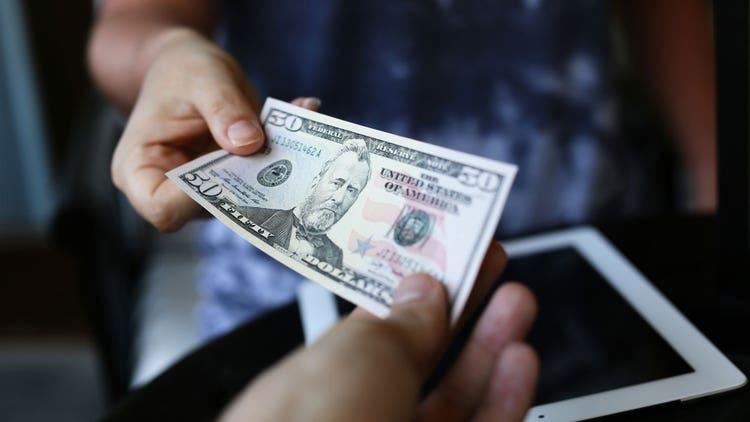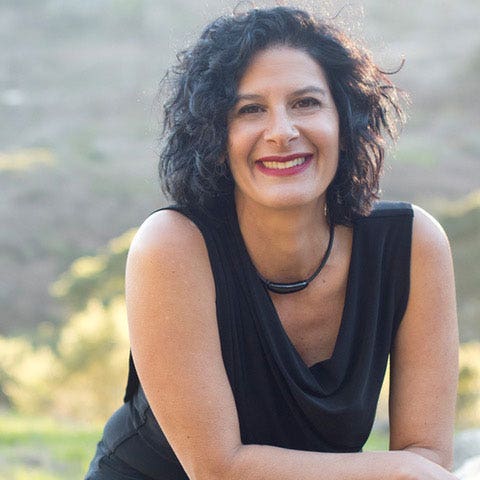Nancy Levin Talks the Dollars and Sense of Self-Worth


24Life recently spoke with Levin about her own experience moving from financial devastation to financial ease.
24Life: Tell us about the life events that brought you to the financial philosophy outlined in your book “Worthy” (Hay House, 2016).
Nancy Levin: The real moments of connection for me between self-worth and net worth was in my divorce settlement eight years ago. I was a breadwinner and had hired a lawyer who I had trusted. The arrangement walking into our mediation was that our stand was no maintenance [payments for my husband after the divorce]. The next thing I knew, my lawyer was negotiating packages and I had given up my property and would pay his mortgage so he could live rent-free for three years, and I had absorbed his debt. These were all things that in my right mind I would not have agreed to. If I had any sense of self-worth, I would have stopped the proceedings and said, “No, I’m not doing this,” and stood up for myself. But I didn’t have that capacity. I let it happen.
24Life: In your book “Worthy,” you say you spent the next two years delving into the feelings of unworthiness that led you to that marriage, in which you spent barely any money on yourself and tried to buy your husband’s approval and calm his anger with lavish gifts. What did you learn?
NL: I realized I wanted to continue down that road of self-inquiry. I ended up doing a yearlong certification program [at The Ford Institute], all while I still had my job as event director at [publishing firm] Hay House. At the end of the year when I finished my training, I was truly unrecognizable to myself, and I wanted to help others feel that way. I had changed the way I was operating. I was not operating from the place of bending over backward and turning myself into a pretzel to be something easily digestible or acceptable to others.
24Life: After you left your marriage, you describe becoming a “miser” who managed to amass a large sum in a low-interest savings account. You were afraid of investing it, in case you lost it and there was no one there to “catch” you. What got you to finally see a financial advisor?
NL: I would never have been able to [pay off the mortgage and set up a higher-interest savings account] if I hadn’t spent the previous few years diving deeply into my feelings of unworthiness and turning them around. It was only through increasing my self-worth that I finally decided I even deserved to consult a financial adviser in the first place!
24Life: You built a coaching practice and published “Jump” (Hay House, 2014), based on your experience in your marriage, life coaching, and your initial recognition of our limiting beliefs. Then in 2014, you quit your job. What attitudes or beliefs were holding you back?
NL: I really determined my sense of value and self-worth by the ways I got validated and got approval from others. And I was so insistent on self-sufficiency and independence.
24Life: In “Worthy,” you said that you think this stemmed from your older brother’s intense medical needs and death when you were so young.
NL: It was like I didn’t want to be any trouble. There was some sense in me of feeling better if I was self-sufficient so my parents could take care of him. It was having a no needs thing. That is protective when we are young, but as adults, it’s a way in which we self-sabotage. We make asking for help something that it doesn’t mean … that we are stupid or not enough. We make not knowing something bad or wrong … make it something about weakness. When we ask for help, we end up being able to draw from the strength and wisdom of others … and create the life we want.
24Life: You developed a coaching program around “Worthy,” to help people identify how their beliefs and sense of self-worth shapes their net worth and help them connect with their desires. You have a book titled, “The New Relationship Blueprint” (Hay House, 2018) coming out this fall. How are you different after going through this painful process and rebuilding your life?
NL: I definitely would not say that I have reverted to the bend-over-backward people pleasing. That’s done for me now. … The big shift for me is that I have moved into a space where good enough is good enough. My career has helped. I have a weekly radio show. People call me and I coach them. At the beginning of my career, I was really attached to the words that came out of my mouth. I’m no longer a perfectionist that way.
24Life: What tips do you have for those trying to have a healthier relationship to money? Where should they start?
NL: Pay attention to the loudest message you’re receiving right now about money, such as, “There’s never enough money,” “Rich people aren’t nice” or “Money makes you greedy.”
Check your habits with money. If you have money, how do you attend to it? Do you get rid of it as soon as you can? Do you hoard it or spend on others but not yourself? And what are your money memories? What do you remember hearing about money?
How do you calculate your value or your net worth? Is it what you have, give, do, achieve? What are the ways you let others determine your self-worth? It’s our beliefs that we are subscribing to that create the reality of what’s happening in our lives.
Photo credit: Pavellvanov, Thinkstock; Courtesy Nancy Levin